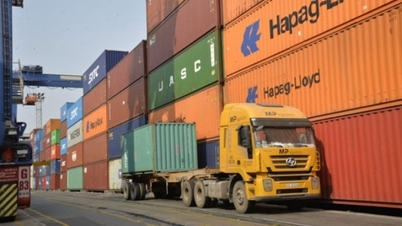Vietnam's economy is showing signs of recovery in the second quarter of 2024 with an estimated growth rate of 6.93%, equivalent to the average of the five years before the COVID-19 pandemic.

However, according to the report of the Ministry of Planning and Investment at the regular Government meeting on July 6 from a survey of 30,000 business shows that businesses are still facing many difficulties from both supply and demand sides.
So what should the Government do to support businesses to continue to grow?
With difficulties related to the business cycle, the Government needs to be alert to overcome pressure from a segment of businesses, playing a neutral role instead of actively supporting, leading to dependence on the State.
The government can business support by providing market information, policy trends of major markets, domestic policy orientations... so that businesses can self-adjust.
In the context of the world economy, especially in developed countries, facing huge challenges in adjusting the economic structure after the pandemic and geopolitical instability, the domestic business community certainly cannot avoid negative impacts.
But this is the opportunity to rise up, both in the domestic and foreign markets, with our own strength and intelligence to take over the positions left behind by failed foreign enterprises.
If successful, Vietnamese businesses and the economy will Vietnam's economy will certainly have a very different place on the world economic map in the coming years.
To increase the chances of success, what the domestic business community needs is a long-term stable macroeconomic environment.
In any circumstances, the Government needs to ensure that inflation is controlled within the target range (preferably between 3-4%/year) and fiscal health (budget deficit ratio is best below 3%; public debt ratio (including local government debt)/GDP is best below 50%; direct debt repayment obligations of the Government compared to state budget revenue are best below 20%).
Maintaining low inflation and sound fiscal policy is also important in keeping the cost of capital for domestic firms low in the long run.
In order to compete and grow in the international market, domestic enterprises have no other choice but to improve product quality, maintain competitive prices and ensure reasonable profit margins to accumulate and attract investment capital.
Domestic enterprises are able to do this if the State helps them reduce tax and fee obligations; reduce transaction costs related to transportation and logistics, administrative procedures, capital mobilization and capital transfer, recruitment and dismissal of employees, establishment/dissolution/bankruptcy costs...
No business owner wants to develop their business, especially expanding it abroad, when the more assets are accumulated domestically, the more the risk of legal entanglement with property rights of individuals and businesses increases.
Therefore, in addition to the commitment not to criminalize economic relations, the Government needs to have specific commitments and actions to minimize criminalization of business activities of entrepreneurs involved in violations related to public investment in the past.
A good legal environment for sustainable business development therefore requires ensuring that the past becomes an asset, not a liability.
Source


































































































Comment (0)